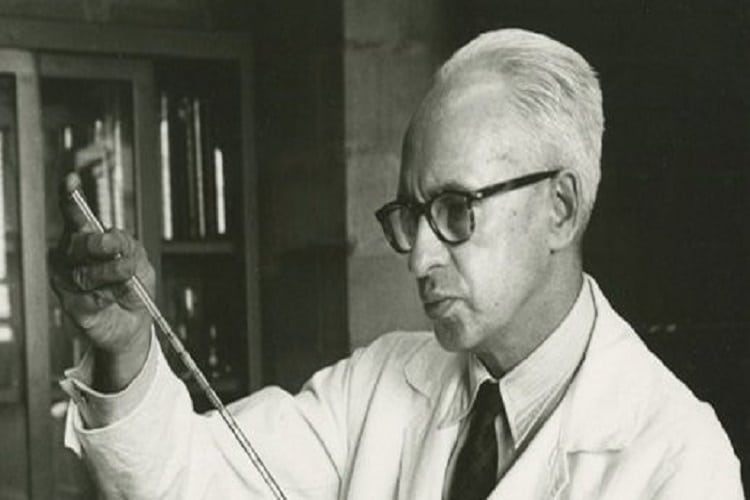Severo Ochoa (24 September 1905 – 1 November 1993) was a renowned Spanish-American biochemist and molecular biologist. Severo Ochoa was awarded the Nobel Prize in Physiology or Medicine in 1959.
Life and Career
Severo Ochoa was born on 24 September 1905, in Luarca, Spain. He began his scientific career by studying medicine at the University of Madrid, where he received his medical degree. He continued his education in biochemistry, earning his Ph.D. in medicine and biochemistry in 1929. During this period, he conducted early research on the biochemistry of muscles and the physiology of muscle contraction.
In the early 1930s, Ochoa traveled to Germany to work with renowned biochemist Otto Meyerhof in Heidelberg. This experience greatly influenced his research and expanded his understanding of biochemistry.
During the 1940s, Ochoa’s research focused on the biochemistry of enzymes. He conducted extensive studies on the mechanisms of enzyme reactions and gained recognition for his work in this area.
One of the most significant periods in Ochoa’s career came in the 1950s. In collaboration with his research team, he made groundbreaking advancements in the synthesis of ribonucleic acid (RNA) and the translation of genetic information into proteins. In 1955, Ochoa and his team successfully synthesized RNA in a test tube, a landmark achievement in molecular biology.
Ochoa continued to conduct research and contribute to the field of biochemistry and molecular biology throughout his career. He held various academic positions, including professorships at New York University and the University of Madrid.
Severo Ochoa passed away on 1 November 1993, in Madrid, Spain.
Award and Legacy
Severo Ochoa was awarded the Nobel Prize in Physiology or Medicine in 1959, jointly with Arthur Kornberg for his pioneering work on RNA synthesis and protein translation.
Apart from the Nobel Prize, Severo Ochoa received numerous other awards and honors during his career, including the Lavoisier Medal, the Copley Medal, and the Presidential Medal of Freedom.
Severo Ochoa left a lasting legacy in the fields of biochemistry and molecular biology. His work on RNA synthesis and the translation of genetic information into proteins laid the foundation for future research in these areas. His contributions continue to influence scientific advancements in genetics, molecular biology, and medicine.
Ochoa’s dedication to scientific research and his pioneering spirit have inspired countless scientists and researchers to explore the mysteries of life at the molecular level. His name is forever associated with groundbreaking discoveries in the biological sciences, and his work remains an essential part of the scientific canon.

